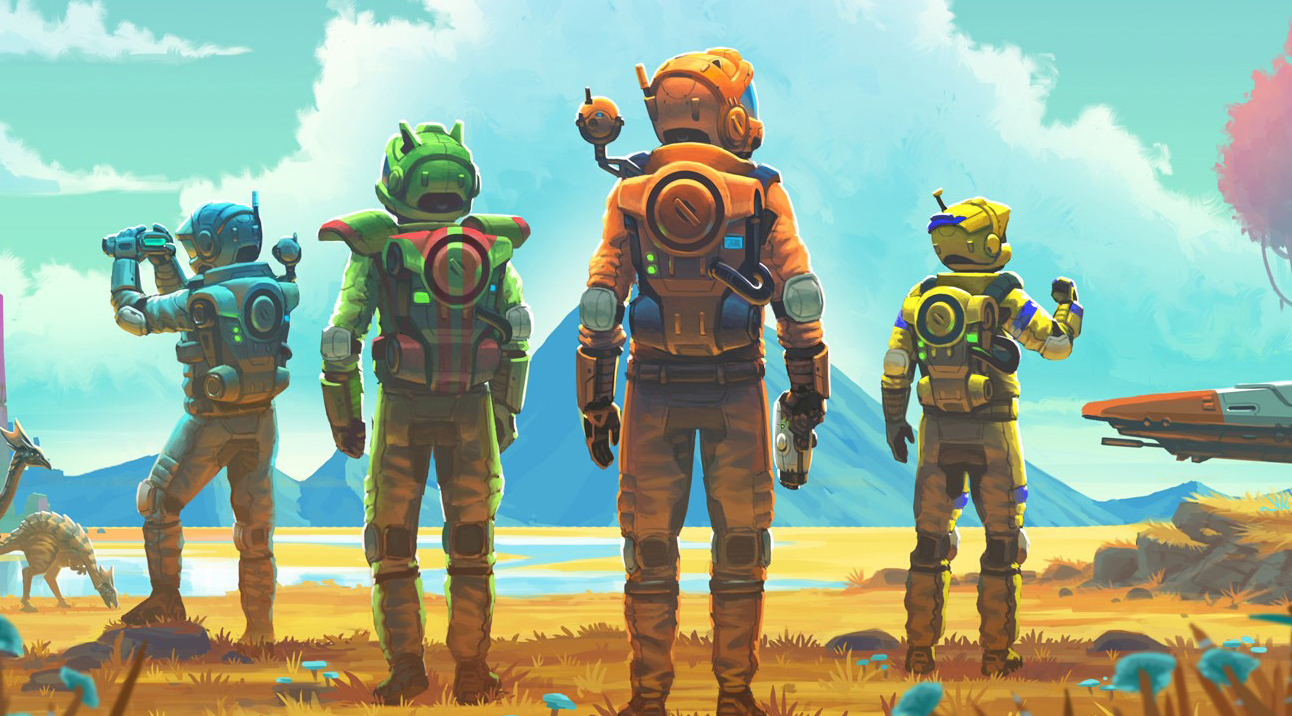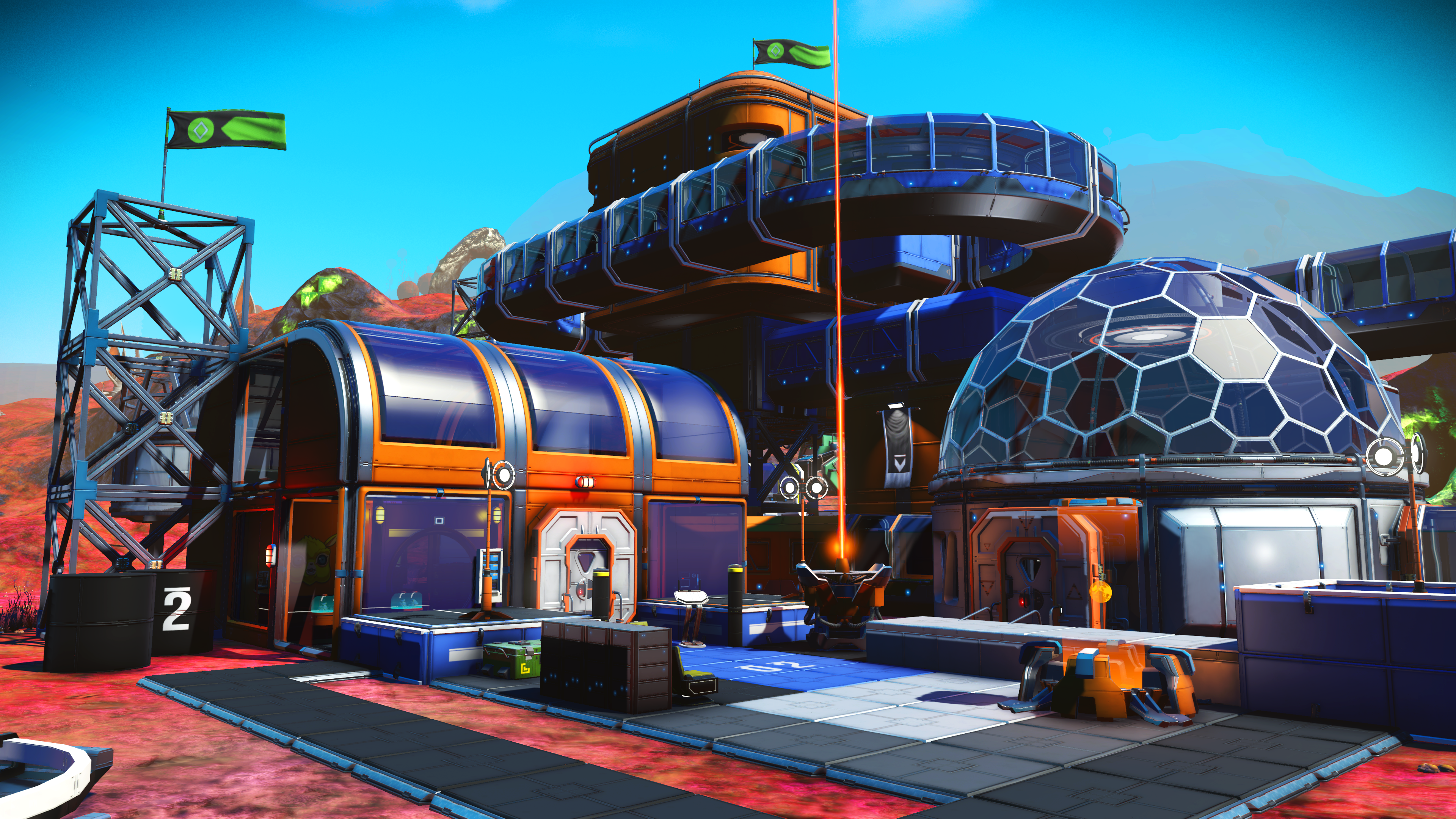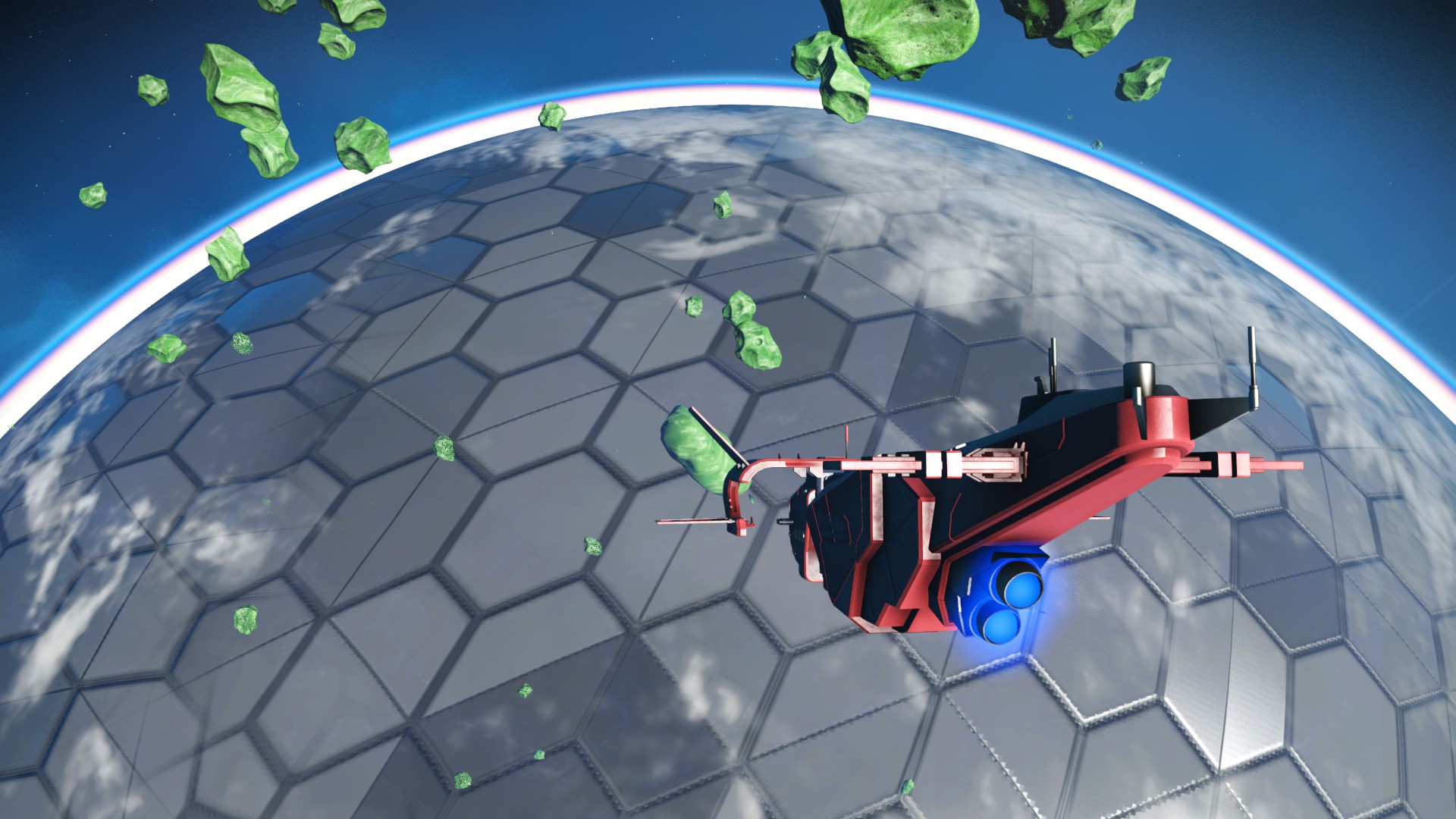Is multiplayer really what No Man's Sky needs?
Updates have greatly improved No Man's Sky, but the core of the game—solo exploration—is still missing something.

"The chances of two players ever crossing paths in a universe this large is pretty much zero," Sean Murray tweeted on August 8, 2016. The very next day, two players met. Or at least they tried to. In what would become something of a defining moment for No Man's Sky, the two players (on PS4) wound up just a few solar systems apart, and arranged a face-to-face fleet-cute on a nearby space station. Even standing on the same spot at the same time, they couldn't see each other.
At the time we weren't told if it was an issue of overloaded servers or a feature that didn't work properly, but now we know it was a feature that simply wasn't there to begin with. In August of 2017, that was remedied to some degree in the Atlas Rises update, which added limited co-op where players could communicate and travel together, but only see other as orbs of light.
Tomorrow, to the delight of many, we're getting multiplayer for No Man's Sky. In some ways the new expansion, called Next, feels like a promise to rewrite that disappointing moment where two players tried to see one another but couldn't, to provide the missing puzzle piece that will let people finally play together. For a solo player like myself, however, I'm left wondering if multiplayer is really what No Man's Sky really needs to pull me back in.

In March of 2016, I interviewed Sean Murray at a pre-launch event for No Man's Sky. We spoke, among other things, about how the game was designed to push players relentlessly on, from planet to planet, system to system."In terms of features,” Murray told me, “in terms of design, decision-making, and stuff, we always say ‘Does this encourage exploration or does it not?’, basically. And we use that to cut out features. So things like base-building: we don't have base-building. And the reason is, it would just make people want to stay where they are and not explore."
Base-building, among other features, has been added to No Man's Sky since then. That's not surprising: in the same interview Murray said he planned to support updates based on what players wanted and how they played the game. “Now after it comes out, you're right, maybe people will say ‘Hey, I just want to settle down and go fishing,’" he told me at the time. "And you know, maybe we'll support that then if there's enough of those people. Right now, it is about pushing people far apart, it is about exploration."
For my part, I was perfectly content to play No Man's Sky the way Murray originally envisioned. I found plenty of habitable, picturesque planets on my travels that would have made good homes, but never felt the desire to settle on one. I dabbled a bit with base-building, but not for very long. I wanted to play the game as an explorer, to keep moving and restlessly searching. The problem was, I wanted to find something out there, something amazing, and I rarely felt like I did.
While the procedural generation in NMS means every planet and creature is different, those differences didn't necessarily make them exciting, and after visiting a couple dozen planets and discovering a twice that many creatures, it began to feel like I wasn't really finding anything new. I was just seeing a slight rearrangement of everything I'd seen before. So for me, when it comes to updates for No Man's Sky, it's never been bases or vehicles or co-op or lore I was interested in, but improvements to the core of No Man's Sky: more exciting, interesting, and majestic procedurally generated planets and creatures. That's what's been missing for me, the feeling that I've found something incredible, something that could really capture my imagination.
The biggest gaming news, reviews and hardware deals
Keep up to date with the most important stories and the best deals, as picked by the PC Gamer team.

The biggest thrill for me in any of the updates so far came from coming across one of the synthetic planets added in the Atlas Rises update. It felt like a real discovery, finally spotting something truly different than I'd seen in the course of the thousands of planets in the hundreds of systems I'd been through already. I felt my pulse quicken, felt the first real sense of wonder since the initial launch of the game. It was a surprise, in other words, in a game where nothing had felt particularly surprising for a very long time. This was followed by a few more odd planet types that had been added, which made exploration feel exciting the way I'd always hoped. If the last three updates to No Man's Sky had done nothing but add new planet types and creature parts, I'm pretty sure I'd have been entirely happy.
I am interested in No Man's Sky's new multiplayer features, but I don't expect them to transform how I play the game. Maybe I'm in the minority, because long before Next was announced, players had already found ways to play No Man's Sky cooperatively. The Galactic Hub Project was founded, where players formed a community to explore a specific region completely, fully mapping out and categorizing the planets and life. A Federation was formed, and group projects like community farms and organized exovehicle races appeared. There's clearly a very strong desire to experience No Man's Sky with other people.
I'll be trying out the co-op features of Next along with everyone else tomorrow, but I'm guessing I'll quickly revert back to Murray's original concept of the game: restless and constant exploration, always moving on to the next planet instead of settling down on the one I'm standing on. It's not other players I want to find in No Man's Sky, it's something else entirely. Whatever it is, I hope it's out there somewhere.

Chris started playing PC games in the 1980s, started writing about them in the early 2000s, and (finally) started getting paid to write about them in the late 2000s. Following a few years as a regular freelancer, PC Gamer hired him in 2014, probably so he'd stop emailing them asking for more work. Chris has a love-hate relationship with survival games and an unhealthy fascination with the inner lives of NPCs. He's also a fan of offbeat simulation games, mods, and ignoring storylines in RPGs so he can make up his own.

